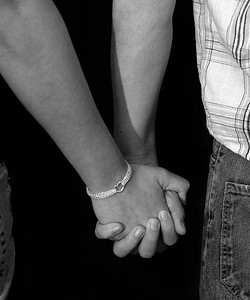
According to Dr. Phil, “we can’t change what we don’t acknowledge first.” With this being the case, I have finally come to terms with a plaguing issue that I’ve denied for many years: My name is Jennifer, and I am an overachiever.
There. I’ve said it. The proof is in the pudding.
Adorning my bedroom walls are dozens of plaques, commendations, and kudos from just about every avenue of my life: from grade school awards, to college scholarships, to writing competitions, to community service.
I say this not to brag, but to make a point. In 2005, in the hit movie “Hustle and Flow,” one of the main characters of the movie laments over how hard it is to be a successful hustler. This “baller” should try being an overachiever! Overachievers may not get the same street cred, or cool theme music, but they work just as hard and live in constant angst in their daily efforts to be the best at what they do.
Achievement becomes an addiction in which the “high” of success is often chased by additional acts of excellence and emotional and physical over investment. And to be quite honest, it can be rather exhausting.
Sure, for those of us who suffer this malady, we can say that it makes our moms proud, earns us a few bragging rights, and reasons to reward ourselves with chocolate and periodic shopping sprees, but somehow, somewhere, we have to draw the line.
For example, I was competing with a little girl at a close friend’s daughter’s birthday party, in a jump rope competition, and let’s just say that this kid proved to be a poor loser. But I was determined to outdo her.
Could you be an overachiever just like me?
Click Here to Read Article …
Popular search terms for this article:how to be an overachiever, being an overachiever, overachiever stress, overachiever personality, how to stop being an overachiever, overachiever at work, overachiever symptoms, overachiever syndrome, characteristics of an overachiever, signs of an overachiever







